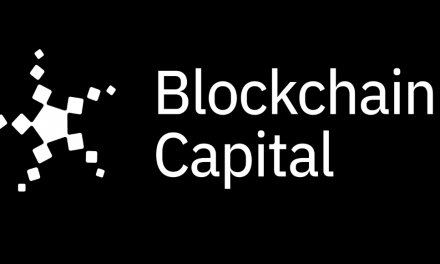Bitcoin leads the way as JPMorgan explores blockchain-based solutions.
In a notable turnaround, Bitcoin surged above the key resistance level of $26,000, sparking a rally across the majority of the top 10 non-stablecoin cryptocurrencies. This resurgence was driven by news of JPMorgan Chase & Co., a U.S. financial services behemoth, venturing into blockchain-based payment and settlement systems. While Cardano and Toncoin posted minor losses, Ether recorded moderate gains, albeit remaining below $1,650. Meanwhile, U.S. stock futures exhibited mixed trends following Thursday’s mixed performance in the S&P 500 and Nasdaq markets, driven partly by stronger-than-expected jobs data that has intensified rate hike concerns.
Bitcoin Takes the Lead
Bitcoin’s value saw a 1.62% uptick over 24 hours, crossing the $26,000 mark to settle at $26,179.43 by 07:30 a.m. in Hong Kong. This performance managed to erase the week’s losses, with Bitcoin closing the week with a 0.75% gain. Notably, the cryptocurrency had maintained a trading range between approximately $25,500 and $26,000 over the past week before reaching an eight-day peak of $26,409.30 on Friday.
JPMorgan, the largest U.S. bank by assets, has embarked on the development of a blockchain-based digital deposit token tailored for cross-border payments and settlements. While much of the underlying infrastructure has been laid out, regulatory approval from U.S. authorities is pending. These deposit tokens represent transferable digital assets that denote deposit claims against commercial banks. They are designed to expedite deposit-related transactions while reducing costs compared to traditional methods.
Markus Thielen, Head of Research & Strategy at digital asset service platform Matrixport, commented on this development, stating, “It is another sign that large corporations continue to build their blockchain capabilities during this bear market.”
A Domino Effect in the Making
Justin d’Anethan, Head of Asia-Pacific Business Development at Belgium-based crypto market maker Keyrock, sees this as part of a broader trend. He pointed out that PayPal’s announcement to launch a stablecoin has triggered a chain reaction of institutional activity in the crypto space. “Once a large player kicks things off and competitors see that as a desirable/profitable set-up, it won’t be long until other players launch their own solution, if only to stay relevant in an ever-advancing space,” d’Anethan said.
The market is currently anticipating a decision from the U.S. Securities and Exchange Commission (SEC) regarding BlackRock’s application to establish a spot Bitcoin exchange-traded fund (ETF). While most anticipate the SEC’s decision to impact the market in October, the potential approval of such an ETF could be a catalyst for a Bitcoin rally, potentially pushing prices back above $30,000.
Elsewhere, Martin Gruenberg, Chairman of the U.S. Federal Deposit Insurance Corporation (FDIC), noted the persistent downside risks faced by the U.S. banking industry. While the economy appears robust, factors such as inflation, rising market interest rates, and geopolitical uncertainty continue to pose significant challenges.
Historically, Bitcoin prices have benefited from uncertainties within the banking system, such as the Credit Suisse crisis in March that caused Bitcoin’s price to surge from below $27,000 to over $28,000.
Mixed Markets and Apple Woes in China
U.S. stock futures displayed mixed trends by 09:40 a.m. in Asia, reflecting the ambiguity in the market. While the Nasdaq Composite suffered a 0.89% loss on Thursday, all major Asian indexes experienced declines, with Hong Kong’s Hang Seng leading the way with a 1.34% drop.
The U.S. reported initial jobless claims of 216,000 for the week ending September 2, marking the lowest level since February. Despite missing the 234,000 forecast in a Reuters poll, this data underscores the ongoing tightness of the labor market.
On the flip side, several Federal Reserve officials expressed the view that the central bank should maintain unchanged interest rates at its September 20 meeting. After raising rates in July, the Fed’s policy move will likely be influenced by economic data, especially with regard to inflation.
In a separate development, several Chinese government agencies instructed their staff not to use iPhones, citing escalating tensions between Beijing and Washington. This restriction may extend to state-owned enterprises and affiliated organizations. Given China’s status as one of Apple’s largest foreign markets, this news had a negative impact on Apple’s shares, which closed 2.92% lower on Thursday.
Edward Moya, Senior Market Analyst at OANDA, noted, “The Nasdaq is sinking as one bad Apple spoils a bunch of mega-cap tech stocks,” emphasizing the significant role China plays in Apple’s growth story.
As the cryptocurrency landscape evolves and traditional finance institutions explore blockchain-based solutions, the market remains dynamic and sensitive to global developments.





